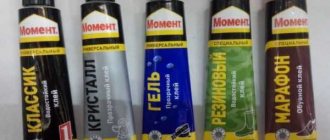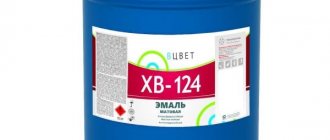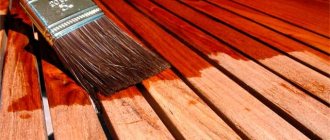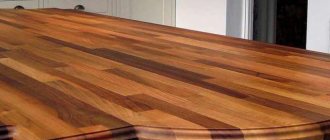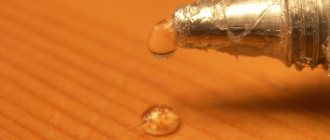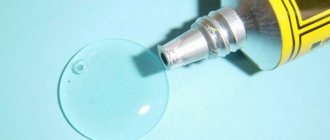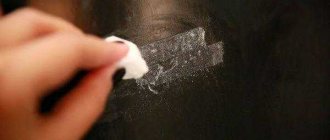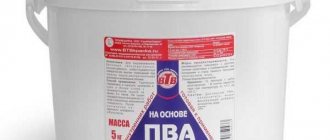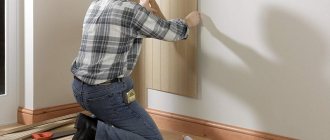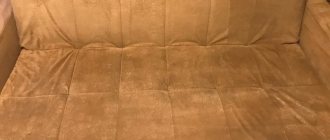Application of universal glue “Moment”
There are many types of adhesives, including those that have been used for over half a century. But the relatively recently appeared “Moment” glue is confidently on par with them and is even better known to many people. As practice shows, it’s not just a matter of marketing ploys: this chemical composition really works. Our article is devoted to the use of this universal glue.
Peculiarities
First of all, it is worth emphasizing that there is not just one “Moment” glue; it is a whole galaxy of connecting materials, each intended for a specific task.
Regardless of the specific scope of application, they differ:
- long period of work;
- immunity to water ingress;
- excellent resistance to overheating;
- mechanical strength;
- stability of the formed adhesive seam.
When the adhesive hardens, it does not expand or shrink (which are the main reasons why joints fail prematurely). Even when solvent or machine oil gets into the connection, the performance characteristics are completely preserved. Adhesion between surfaces occurs very quickly, there is no need to take a break from your usual daily activities for a long time.
But its high qualities and associated popularity made Moment a constant target for counterfeiters. No one can guarantee the quality of their products.
As for the unpleasant odor, this is an inevitable feature of almost any adhesive mixture, so there is nothing specific about it.
A little history
The company's goal is to improve the quality characteristics of its products in the field of household and construction chemicals. Henkel has great reputation in the world for its wide and high-quality range of products. Until the end of the seventies of the 20th century, the Soviet Union was forced to purchase glue from abroad. In our country, only in 1979 did our own domestic one appear.
The Tosnensky plant in the Leningrad region took over the production of a line of adhesive products in 1991. In 1994, the plant received full ownership of the Moment glue trademark. Exclusively German technology is used in the manufacture of products. From the very beginning of production to this day, the plant’s products have no competition among other manufacturers and deservedly occupy a leading position in the market.
Kinds
Let's look at the most popular varieties of the universal composition.
“Classic” has proven itself to be the best when repairing various things and when assembling many structures and parts. An important advantage of this material is the ability to combine substances in the most bizarre combinations. The glue easily tolerates contact with water, the working temperatures of the seam are from -40 to +110 degrees.
With this composition you can:
- connect wood and leather, metal and PVC, rubber products and natural cork (in various combinations);
- glue decorative laminate and fittings to the base made of natural wood and wood materials;
- carry out veneering;
- perform postforming;
- make panels with your own hands with increased soundproofing properties or with special acoustic parameters;
- increase the tightness of the edges of plywood and wooden products, covering them from water.
“Moment” glue of this modification will not help to glue styrofoam, polyethylene and polypropylene objects, or products made of plasticized polyvinyl chloride. For hygienic reasons, it is unacceptable to use it to restore items in contact with food and medicinal raw materials.
Universal glue is attractive because it is very easy to work with, and the seam dries quickly: surfaces treated according to all the rules can be fully used just 24 hours after applying the composition. The developers managed to achieve such impressive properties through the use of a variety of components and extensive testing of preliminary samples.
In production, rosin (pure and in combination with esters), additives that protect against the action of solvents, rubber and polyhydric resins are added to the mixture. If you have to build a whole house or repair a lot of things, it is advisable to buy a 1 liter package, it is more economical.
Please note: other types of Moment glue can also be considered universal, even if they are not called that way.
“PVA Joiner” has become widespread among both woodworking professionals and home craftsmen. It is this mixture that is best suited when you need to assemble furniture or restore its integrity.
Using “Joiner” you can connect:
- paper;
- plywood of various thicknesses;
- plastics;
- fittings;
- textile details.
A strong chemical bond connects the desired items within 5 minutes.
Waterproof contact adhesive is good because it is transparent and no traces appear during operation, but a completely elastic seam is formed. This composition is useful when you need to combine PVC, organic glass, polystyrene. It works well with natural materials such as wood, paper or metal. But polyethylene, polypropylene and all things in contact with food are prohibited. It is important to remember that this glue is not only poisonous, but also flammable, so it should be stored away from fire and sources of strong heat.
Wallpaper glue "Moment" is divided into a number of types (for each type of wallpaper). Regardless of this, it contains special components that stop the development of mold fungi. We can talk about individual types for a long time, but the time has come to talk about more important things - practical properties.
Properties
Polyurethane adhesive is capable of gluing hard and soft materials from polystyrene, polyvinyl chloride and other types of synthetic polymer products. It can also be used for gluing wood materials, natural plant cork, acrylic resin plexiglass, metal, ceramic and porcelain products, rubber, paper and cardboard.
Main technical and operational characteristics of the product:
- the product is a transparent gel that remains colorless even after hardening;
- suitable for gluing various combinations of materials;
- It is a water-resistant composition, therefore it can be used for products made of natural and synthetic rubber (rubber);
- not subject to aggressive alkaline and acidic effects;
- has the ability to crystallize during hardening, ensures ideal adhesion to surfaces;
- has high strength properties and does not leave dirty marks or stains after processing;
- treated seams are not affected by high and low temperatures (from -40 to +70 degrees);
- To remove excess adhesive, you do not need to use solvents - they can be removed mechanically or by rolling them with your fingers.
A special feature of the glue is the restoration of its necessary properties after freezing. It is able to regain its original consistency at room temperature.
The universal Moment Crystal gel can dry out, crystallize prematurely and become unusable only if the seal of the packaging is broken. The product is stored at an average temperature of -20 to +30 degrees for 24 months.
There are two main limitations in using glue:
- it cannot be used for gluing dishes used for food;
- it is not suitable for repairing products made of polypropylene, polyethylene and Teflon.
Specifications
Universal glue “Moment” is supplied in 750 ml cans and 10 liter canisters; smaller packaging – 30, 50 and 125 ml (in tubes). There is also a universal “Moment-1” 125 ml. The carpentry variety of the material is sold in 3 kg packages, since working with furniture and wooden structures requires significant consumption.
A tube with a capacity of 400 g is most often “Moment Montazh Superstrong MV-70”. This mixture allows you to glue wall panels, window sills, baseboards and decorative structures of various kinds.
If you need to buy especially strong glue, it is better to choose “Moment 88”. It easily withstands the effects of cold and moisture, and can even connect cardboard with glass, cork with concrete, or plastic with rubber. But styrofoam and individual polymer materials cannot be glued with this composition.
Transparent universal adhesive “Moment”, judging by reviews, perfectly holds a variety of materials, including plaster. It is actively used by creators of all kinds of crafts and home craftsmen: thanks to unnoticeable seams, the created objects seem solid, sometimes it is difficult to guess that glue was used at all.
The white composition of universal PVA 250 g is attractive because it does not give off a bad odor; Often this is the composition that is associated with the famous liquid nails.
Areas of use
The scope of application of the products in the “Moment” line is wide, but different for different compositions. Assembly adhesives - “liquid nails” - can reliably glue tiles, ceiling and floor plinths, bathroom mirrors, and cabinet fastenings. "Liquid nails" are used together with a construction gun.
Wallpaper adhesives are used in repairs; they allow you to attach non-woven wallpaper, non-woven vinyl, glass wallpaper, and photo wallpaper. The Moment Joiner series is useful for gluing products made of cork, wood, fibreboard, chipboard, MDF, laminate. Using “Classic” and “Crystal” adhesives you can solve any everyday problem: gluing a piece of equipment, repairing interior items, assembling furniture. Some adhesives are great for fabric and foam, paper and cardboard, making them ideal for creativity. Polyurethane adhesive is used for repairing boats and other rubber products.
Purpose
Based on the requirements of GOST, the transparent universal “Moment” will help connect:
- skin;
- glass surfaces;
- PVC;
- tree;
- porcelain;
- plastic.
Judging by the reviews, the mounting variety does a good job of securing window frames and mirrors; Unlike the transparent modification, it is also suitable for working with metal and polystyrene foam. More detailed instructions can be found in the instructions for the specific sample.
Momat
Read us and be healthy! User agreement price from: 107 rub. Photo of the drug
The description is valid on
- Latin name: Momate
- ATX code: D07AC13
- Active ingredient: Mometasone
- Manufacturer: Glenmark Pharmaceuticals Ltd., India
- Compound
- Release form
- pharmachologic effect
- Pharmacodynamics and pharmacokinetics
- Indications for use of the drug
- Contraindications
- special instructions
- Use in pediatrics
- Side effects
- Instructions for Momat (Method and dosage)
- Overdose
- Interaction
- Terms of sale
- Storage conditions
- Best before date
- Analogs
- With alcohol
- Reviews
- Price, where to buy
Instructions for use
Each adhesive composition must be applied in a special way. It would be advisable to consider using the Moment Montazh mixture, one of the most popular in construction.
- At the moment of application, it is necessary to strongly press the surfaces to be connected to each other; it is this force, and not the duration of pressure, that is especially important. If you don’t have a special roller, you can use bottles or other oblong objects to apply pressure to ensure uniform pressure.
- When storing glue, you need to make sure that it is hermetically sealed and that the temperature is not lower than -20 and not higher than +30 degrees. Glue that has been frozen at acceptable temperatures will need to be stirred before use.
- Before using the mixture, you need to remove fatty deposits and deposits on the surfaces to be treated (using gasoline or acetone) and after placing a thin layer of the substance, leave it alone for 15-20 minutes (then press).
- If you find excess glue, you need to wait for it to partially dry and manually collect it into a small ball, which is then thrown into the trash. The adhesive mixture is removed from the surface of clothing by simple washing using a standard program.
For more information about the universal glue “Moment-1”, see the video below.
additional information
Glue “88” is named so for a reason. During the strength tests, for some reason the test procedures were extended for 8 days (instead of the usual 7), with the tensile strength withstand on the last day being 8 joules. The experimenters could not ignore such an unusual fact, and so the result of technical control gave the name to the product. For professionals in the field of chemistry and building materials, these numbers - 88 - mean a lot. Only rare adhesives can boast the same stability during use.
The normal color of the composition can be different: both a light yellow and a light green tint are acceptable, and occasionally there is even a beige tint. The manufacturer guarantees excellent resistance of the adhesive to contact with gasoline and diesel fuel.
Despite all the reliability of “Moment 88”, it is necessary to degrease the substrate in any case. If you don't follow this rule, there is no chance of success. The adhesive mass must be in contact with air for some time before final attachment. For substances that are not too porous, the exposure time is from 2 to 3 minutes (taking into account a layer of 0.2 cm on one surface). If the mixture is applied on both sides at once, keep it in the air for 5 minutes.
When a porous coating is processed on both sides, use a layer up to 0.5 cm thick and leave for 10 minutes, this is enough to saturate the pores. Please note: materials that greedily absorb the composition must be processed twice. If Moment 88 thickens excessively, it is permissible to dilute it with ethyl acetate. The proportion for dilution is 1: 1. The most important advantage of this glue compared to the usual “Moment” is the ability to release subsequently connected surfaces.
In the next video you will find a review of the Moment 88 glue for gluing a neoprene spearfishing suit.
How to glue with Moment glue?
Lyudmila Kolyagina February 20, 2013 7301 Rate:
Things that surround people often break: shoes come unstuck, furniture breaks, plates break... But what to do when the “misfortune” has already happened, how to put the thing back together so that it can still serve us? People use glue, of course. Today we will talk about different types of Moment glue. But how to glue with Moment glue so that the glued things will serve us more than once? Read the answer in our article!
What types of adhesives are there and why?
- Glue moment carpenter. This glue is made on the basis of the usual PVA, plasticizer, as well as various dyes and additives. You can use this glue for gluing all kinds of wood, plywood, chipboard, veneer, cardboard, laminate, fabric, fittings and leather. The color of the glue also matches the wood itself, so it is practically invisible.
- Glue moment gel. Perhaps not only conventional gluing, but also combined. Glues: cardboard, paper, foam rubber, fabric, leather, rubber, metal, wood, glass, ceramics, porcelain, plastic and other materials. But they are prohibited from gluing any material on which food will fall.
- Glue moment installation. This glue is transparent in appearance, quick-drying and water-resistant. Used for gluing: soft and hard polyvinyl chloride, porcelain, plastic, ceramics, wood, glass, rubber, leather, paper, foam rubber, cardboard. But they also do not need to glue food dishes and polyethylene with polypropylene.
Today we are talking about such an indispensable glue as Super-Moment glue, but what else can it be called? For example, "shoe". With glue intended for shoes, you can glue more than one shoe. An experienced home owner can glue a stool or chair using this glue. You can also glue: leather, metal, paper, rubber, glass and many other materials. We can glue even materials with different compositions, such as wood and metal, with this glue.
What it is
The history of unique technologies using natural adhesives goes back several thousand years. But only in the 19th century adhesive compositions based on natural rubber began to be used. This can be considered the beginning of the history of modern rubber glue, which necessarily contains dissolved rubber.
Natural rubber
Rubber material is called for the high-quality connection of the surfaces of elastic products to obtain (after complete hardening) a layer that is no different from rubber in elasticity, characteristics and appearance.
Natural rubber has limitations for use due to its constant characteristics of resistance to certain external influences and low heat resistance. The problem was solved with the development of the chemical industry. Now, rubber adhesive can also be based on synthetic rubber.
With the increase in the types of rubber products and the demand for elastic compounds on an industrial scale, the requirements for the properties, characteristics and strength of the seams of the adhesives used are growing. To give the adhesive composition a certain ability or change its properties, certain ingredients are added to it. Their composition and quantity are determined by the technical laboratories of manufacturing companies. Consequently, the ingredients, quality and application of glue from different brands may vary significantly. Some brands are produced only for the same type of material, taking into account the characteristics of its surface, approaching in texture and properties.
The following can be used as additives: various types of plasticizers; consistency stabilizers that prevent the components from turning into a gel state; increasing the strength of the hardening layer of resin and polystyrene; fillers to improve the vulcanization of the type of rubber used and other substances.
To summarize, we answer the question in the title of this section. Rubber adhesive is a composition of rubber (natural or synthetic), a solvent, a cross-linking agent (substances that prevent polymers from deforming and swelling in a solvent, increasing their strength) and special additives.
How to glue correctly
Moment glue is a toxic glue and must be used with caution. Of course, now it is not as dangerous as the first Moment glue. But still, there is no need to give it to children. The fact is that careless handling can cause irritation to the eyes, skin and respiratory system.
Moment PVA glue is said to be more health-friendly and recommended for use by children and adolescents, but we still recommend using rubber gloves when using it and not inhaling the vapors of this glue. But if glue gets into your eyes, you should rinse them well with water and consult a doctor immediately. When using glue containing quickly evaporating solvents, ventilate the room for a long time. Smoking is prohibited, as a sudden and even very small spark can cause a fire.
Glue moment refers to contact adhesives. These adhesives are made with either a rubber or polyurethane base. It is used for both porous and dense materials.
Precautionary measures
Transparent glue “Moment Crystal” is flammable, and therefore when working with it it is important to observe the following safety precautions:
- Do not open package near sources of fire.
- Do not apply adhesive to products that are located near sources of high temperature.
- Do not apply glue to hot surfaces.
All actions with glue are carried out only in a well-ventilated room (use a hood or through ventilation). During long-term work, even with forced ventilation, you should wear a respirator. You should work with gloves and special clothing. If the adhesive gets on your hands or other areas of the skin, they should be washed with a large amount of soapy water. If the product gets into the eyes or other mucous membranes, rinse it out and immediately seek medical help.
How to store glue? The product should be stored only in original packaging that is tightly closed. The storage location should be located out of the reach of pets, children, sunlight and possible heating. It is desirable that the temperature should be no less than room temperature, but freezing of the adhesive composition is also allowed (after defrosting it retains its properties). Temperature standards for storage are from -21 to +31 degrees, and the period is up to two years. Also, under no circumstances should the used adhesive packaging be thrown into the fire, and it should be disposed of along with household waste. If the recommendations are followed, the adhesive composition does not pose a danger to human health and life.
Rules for working with moment glue
Where the gluing area will be, rub it with sandpaper (this procedure is very useful and effective for smooth surfaces - metal, plastic). It is also very important to degrease the surface itself. This can be done using acetone. If the surface is porous, then you need to remove dust from it; if possible, then we also clean it with sandpaper.
The glue must be applied in a thin layer. We do this as quickly as possible. It is very convenient to use a thin stick, such as a toothpick or an awl, when gluing. When you need to coat a large surface, drop some glue onto it and quickly spread it either with the back of a pencil or with a disposable brush. This is very important when using Universal Moment glue.
After you have coated the desired surface with glue, leave it alone for about five minutes. Also, you shouldn't do dusty work when gluing something, because this can impair the adhesion. When using Super Moment glue, it is important to leave the thing being glued alone for twenty-four hours.
It is important to calculate everything before gluing, because if you glue it incorrectly, it will be impossible to fix it. You can also use a weight when gluing; not only the amount of time is very important, but also the weight of the weight that presses on the object being glued.
Types of superglue
Miracle glue was developed in the USA back in the 50s of the last century. It has gained worldwide popularity due to the speed and reliability of combining dissimilar substances into a strong, indestructible whole.
All types of superglue contain 97-99% cyanoacrylate and additives that enhance properties:
- thickeners;
- hardening activators;
- enhancers elasticity, adhesion and water resistance.
Superglue is suitable for working with rubber, plastic, metal, and wood. You can glue any surfaces.
One-component
Popular types of superglue have one component in their composition and are produced in small tubes and blisters. Packaged in small volumes, since if the seal is broken, the composition quickly loses its properties and thickens. Setting occurs in a matter of seconds, but the item should be left for several hours (up to a day) before use so that the glue is completely hardened.
Two-component
More rare are two-component versions of superglue. Activation of the adhesive composition occurs by mixing substances from two tubes that are sold together. Before use, glue and a special activator are combined and applied to the parts. You need to do it in 2 minutes while the plasticity of the substance remains.
Tips and tricks:
Precise dosing and application
Squeeze a small amount of glue onto one of the surfaces to be glued and quickly spread it with a previously prepared piece of paper or a match. If necessary, add more glue and again spread it evenly over the glue-free surface. When there is enough glue, connect the surfaces
Clean and unstick
Don’t worry if you get your fingers dirty with second glue or even glue them together. There are two ways to separate them. The first is to put your fingers in a container of very warm water and hold them there for a while. Second, wipe your fingers with vegetable oil. After you have done one of these operations, you can gently scrub the stained area, or separate the glued fingers by moving them back and forth. Do not make sudden jerks or separate your fingers using great force! This can be painful and cause skin damage.
Storage:
Store tightly closed at temperatures between minus 20°C and plus 30°C.
Ideal storage conditions are from plus 2°C to plus 8°C.
Application
1. The surfaces to be glued must be dry and clean.
2. To increase the adhesive strength of the surface, it is recommended to additionally clean it with sandpaper and degrease it with gasoline or acetone.
3. Before gluing, keep the materials at room temperature (from +18°C to +25°C).
4. Apply glue to one of the surfaces and immediately press the parts together. The speed of setting depends on air humidity. High humidity speeds up the setting time, while low humidity slows down the process.
5. Fixation time is usually 5-60 seconds.
6. Press from the center to the edges to avoid air accumulation. Glue the edges carefully.
Popular posts
- Chair for dressing table Chairs for dressing tables in Moscow - 189 Products Company from Moscow, delivery 29643 a In…
- Silicone sanitary sealant Silicone sanitary sealant white in Moscow - 1491 products Company from Moscow, delivery (tomorrow) 140...
- Shelf in the hallway Currently, there are a huge number of different options for shelves in the hallway, and this is directly ...
- Insulation of the floor in a wooden Insulation of the floor in a wooden house from below: materials and installation technology SHARE ON SOCIAL NETWORKS One of the common…
